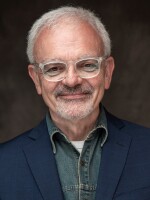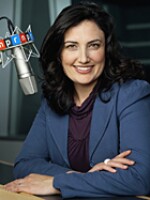MADELEINE BRAND, host:
From the studios of NPR West, this is DAY TO DAY. I'm Madeleine Brand.
NOAH ADAMS, host:
And I'm Noah Adams.
Coming up on the program, more details on this week's pipeline explosion in Nigeria where people are risking their lives to get gasoline.
BRAND: First we begin with President Bush's Iraq strategy meeting today at his ranch in Crawford, Texas. The president has gathered his top military and diplomatic advisors as he plans to announce a new plan for the Iraq war. That announcement is not expected any time soon. In fact, the White House is calling today's meeting a non-decisional gathering.
NPR's White House correspondent Don Gonyea is in Crawford just down the road from the president's ranch and he joins us now.
Hi, Don.
DON GONYEA: Hey, how are you?
BRAND: I'm fine. Thank you. Well, who's there? Who's at this meeting?
GONYEA: This is the president's National Security Council so that includes his new secretary of defense Robert Gates who is just back from Iraq and who is also just back Camp David where he briefed the president over the weekend before the president headed down here.
But this is, again, the bigger group. It also includes Secretary of State Condoleezza Rice. The national security advisor Stephen Hadley is here. The chairman of the joint chiefs, General Peter Pace, is at the ranch. And Dick Cheney, the vice president, is here as well.
BRAND: So he's getting a lot of information, a lot of opinions from the people gathered there and yet this meeting has been called non-decisional. What's up with that word?
GONYEA: That's just Texas talk, Madeleine. They're having a non-decisional meeting down the road a piece at the ranch. It's what happens when the Washington policymakers come to a place like Crawford, Texas. And essentially, I think it means that they're not going to end this meeting by all kind of you know signing off saying, we're all on the same page. We're all ready to move forward with a plan.
It doesn't mean that they haven't largely made up their mind. But I think it's a message to us that the president is not going to come out and really give us any significant clues as to what they're going to be announcing next month on the new Iraq policy.
BRAND: And yeah, we are hearing in some news reports that he's leaning towards this so-called surge, increasing troops, at least temporarily.
GONYEA: Exactly. And that does seem to be the way they're going, so the only question is how many troops it is? Is it 10,000? Is it 20,000? Is it as many as 30,000?
The other thing they may indeed be spending a good deal of time talking about today is given that, you know, there is opposition particularly among some members of Congress, but also some concerns - very real concerns on the part of the American public about sending more troops to Iraq, a very unpopular war at this point. They may be talking a great deal about how to really sell it and make the case to the people.
BRAND: Well, it seems that one way of doing it is using this word surge. It seems - It seems like a nice word, surge.
GONYEA: It's a pretty positive word, isn't it? And they started using that word some weeks back and it does seem to be a chance to at least control the language that is used around this. Surge implies, yeah, kind of a burst of energy, but it also, implicit in that is that the forces would eventually recede, that it is temporary, that there would be a drawing down.
And again, there are people who say, well, surge may not be the right word because we don't know if or when they will be able to pull down. You know, it's certainly not that it would be in a really quick and temporary manner, this increase. So maybe the word escalation is better. You hear that kind of a debate.
BRAND: And you said that we shouldn't expect any announcement soon. What would be the timeline? Because there's a State of the Union address coming up.
GONYEA: That's on the 23rd of January. We expect it to be before that. He doesn't want to step on that announcement, so we've been looking, you know, maybe sometime next week, but they also have to work around the schedule of the Gerald R. Ford funeral which is next Tuesday.
BRAND: All right. NPR's Don Gonyea reporting from the Crawford, Texas area, just down the road a piece from the president's ranch. Thanks a lot, Don.
GONYEA: All right. Thank you. Transcript provided by NPR, Copyright NPR.







